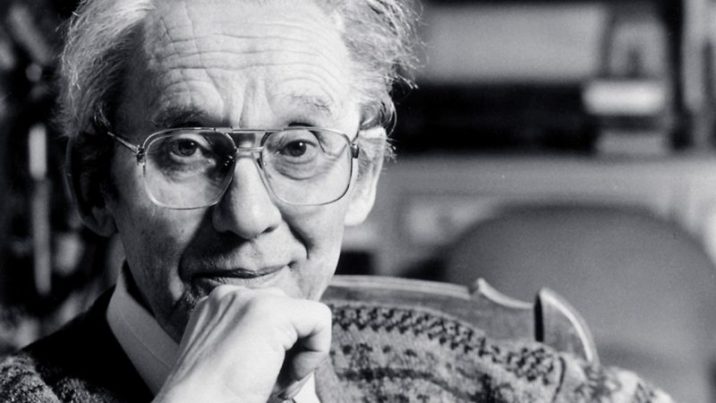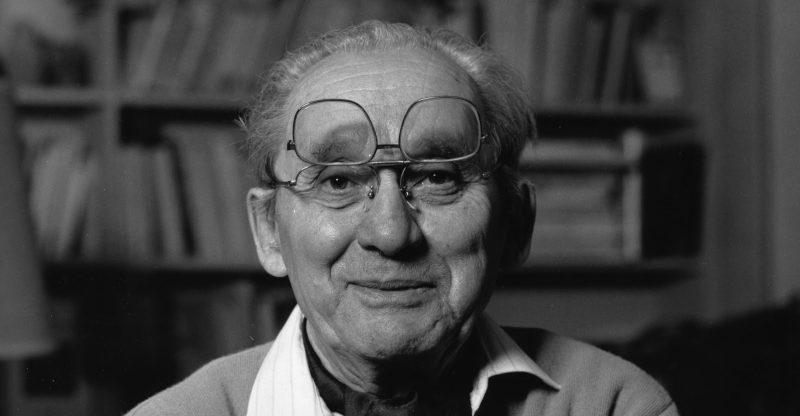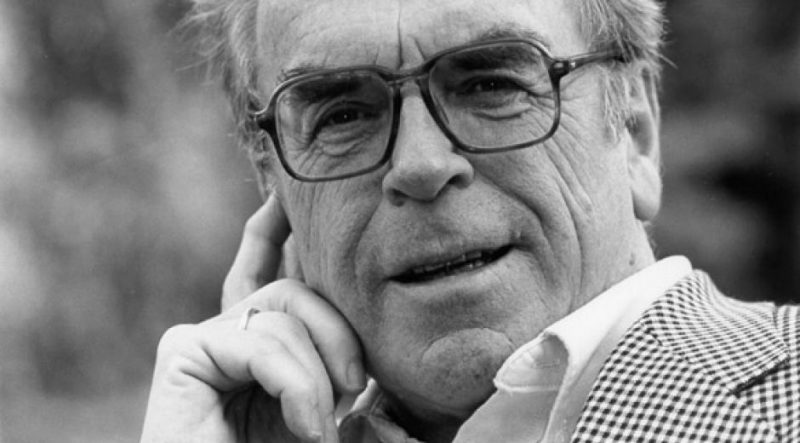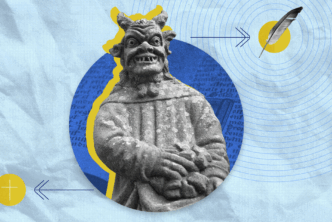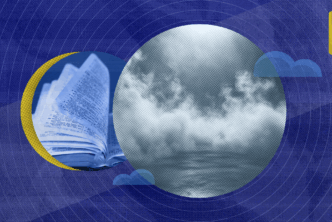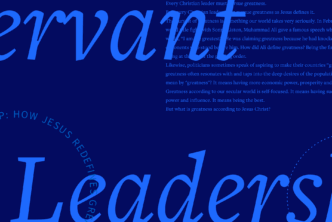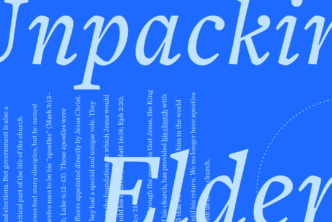
The following paper by Stephen Chan was presented at the “Internationale Konferenz über Moltmanns Denken und Sino-Theologie”, held at Chung Yuan University, Taipei, Taiwan.
Introduction
In his early article on the philosophy of hope, Paul Ricoeur admiringly spoke of Moltmann’s eschatological theology: “For my part I have been very much taken with – I should say, won over by – the eschatological interpretation that Jurgen Moltmann gives to the Christian kerygma in his work The Theology of Hope.”1 It is quite uncommon for a contemporary European philosopher to so explicitly admit his indebtedness to theological insight. Yet, this is reminiscent of the intriguing history of how Karl Barth’s Römerbrief once inspired Martin Heidegger’s Sein und Zeit.
Although the title of this essay is comparative, my intention is to appropriate some of Ricoeur’s philosophical insights into my understanding of Moltmann’s thought. The paper is an attempt to put theology and philosophy in proximity in order to anticipate a cross-fertilization of ideas.
Moltmann is the one thinker that has most inspired Ricoeur, and many others, in the post-WWII era. His theology of hope was a breakthrough at the time. It was a validation of the Zeitgeist, of the world rebuilding from the ruins, which soon plunged into the turbulence of the sixties. After almost forty years, the theology of hope inaugurated in 1964 sees its consummation in The Coming of God, with a series of methodological and topical epilogues still to come. It is a time to celebrate the theological legacy of Moltmann, as well as a time to think with and after Moltmann. Moltmann’s theology of hope was an interruption at that time; does it not also contain an interruption of itself which will keep opening our horizon as we move onward? This is the question at stake.
Ricoeur’s Idea of Hope
In another article on hope, Ricoeur spelled out the tradition and contribution of Moltmann’s thought: “I shall borrow the main idea of this first part from the German theologian Jürgen Moltmann in his Theology of Hope. Jurgen Moltmann is the heir of a long tradition of exegetes starting from Joannes Weiss and Albert Schweitzer; for this school the kernel of the New Testament is constituted by the preaching of the Kingdom of God. If it is true that the Kerygma of the primitive church, following the preaching of Jesus, was centered around the eschatological event, then the whole of theology must be reinterpreted according to the norm of eschatology.”2 The uncovering of the Kingdom of God as the kerygma of the New Testament is significant because it shifts our view of New Testament, and therefore the kernel of Christian faith, towards the horizon of future. This new thrust requires us not only to reconstitute New Testament theology, but the whole of theology. Yet it was not until Jürgen Moltmann that the whole theological project was fully realized, inaugurated in Theology of Hope (1964) and consummated in The Coming of God (1995).3
However, Ricoeur, as a philosopher, does not see his task as explicating hope in the biblical and theological tradition. What he commits himself to do is a “free thinking”, a “pure reflection,”4 an autonomous thinking that always moves towards an approximation of theology. Approximation is a favorite term that Ricoeur uses to characterize his philosophical approach to theology.5 To him, free philosophical reflection lies not in equality but in proximity to the biblical witness and theological discourse.6 The free exercise of a philosophical reflection on hope gives rise to two moves: retrieval of the idea of hope within philosophy, and a reconstitution of the system of philosophy in light of the horizon of hope.
The idea of hope, to Ricoeur, is the quintessential question of religious faith. This view puts Ricoeur in line with Kant. In his Critique of Pure Reason, Kant stated that his whole philosophy circled around three questions: “What can I know? What ought I to do? What may I hope?”, of which the third question about hope correlates with the religious dimension of humanity.7 One can retrieve the religious idea of hope before Kant from the idea of hope as one of the three theological virtues that supplement the four cardinal virtues of classical Greek and medieval times. Thus, the exploration of hope, as Ricoeur rightly concludes, “does not primarily belong to philosophical discourse.”8 As a result, Ricoeur defines his idea of hope in Christian terms: “What is freedom in the light of hope? I will answer in one word: it is the meaning of my existence in the light of the Resurrection, that is, as reinstated in the movement which we have called the future of the Resurrection of the Christ.”9 Yet, if hope is such a religious idea, how then can one think of a philosophy of hope?
The Intelligibility of Hope
First, a philosophy of hope necessitates an understanding of that hope. It is an intellectus spei which has its locus classicus in I Peter 3:15: “Always be ready to make your defense to anyone who demands from you an accounting for the hope that is in you” (NRSV). The “accounting for the hope” is an effort to understand the ineffable and elusive hope as summarized by the apostle Paul as “hope against hope” (Rom 4:18) and described by Kierkegaard as “absurd logic.”
This paradox of “accounting for the hope” and the “hope against hope” that defies intelligible formulation gives rise to a hermeneutic of hope. The “hope against hope” defies intelligible formulation because it is often a hope that is “in spite of” the disjunction and hiatus of life, of which death is the ultimate unsurpassable limit. Hence hope, understood in the context of Pauline theology, oscillates between “two central christological events: the Cross and the Resurrection.”10
The resurrection of Christ is not only an event of the past, but a promise to be fulfilled, as rightly stated by Moltmann. Ricoeur said, “What has appeared to me precisely as most interesting in the Christology of Moltmann is his effort to resituate the central preaching of the Resurrection in an eschatological perspective.”11 Resurrection is neither a myth nor an event, but a promise. “The Resurrection, interpreted within a theology of promise, is not an event which closes, by fulfilling the promise, but an event which opens, because it adds to the promise by confirming it.”12
So, the hope that exists in spite of death is a freedom from that hiatus. Christian life is a life liberated for a full and abundant living. A life that is filled with grace and glory. Ricoeur identifies this as the hope of superabundance which leads to a life of “how much more,” as codified by Paul in Romans 5:20: “But where sin increased, grace abounded all the more.”
Regarding this biblical contrast, Ricoeur discerns a deeper meaning: “The logic of crime and punishment was a logic of equivalence (“the wages of sin is death” [Romans 6:23]), the logic of hope is a logic of increase and of superabundance (“When sin increased, grace abounded all the more” [Romans 5:20]) Hope in the superlative sense is “the ‘superabundance’ of meaning as opposed to the abundance of senselessness, of failure, and of destruction.”13 It gives rise to an authentic freedom that is “the capacity to live according to the paradoxical law of superabundance, of denying death and of asserting the excess of sense over non-sense in all desperate situations.”14
Hope Seeking Understanding Systematically
Secondly, a philosophy of hope becomes an understanding of hope in a systematic direction. Spero ut intelligam: I hope in order to understand.15 Ricoeur says, “If there is something like an intellectus spei, (as a parallel to the expression intellectus fidei), it may be that this intellectus spei, this intelligibility of hope, does not consist in pointing to a specific object but to a structural change within philosophical discourse.”16
Ricoeur is, again, inspired by Moltmann in this second move of thought. Just as Moltmann proposed to rethink eschatology not only as the last Christian doctrine, but as the horizon from which the whole theological enterprise should be reconstituted, Ricoeur also endeavors to remake philosophical discourse in light of this hope.
Ricoeur is innovative in his experimentation as he endeavours to follow Moltmann’s trajectory of eschatology in order to envision a new philosophical structure. Ricoeur said, “An innovation of meaning is what Moltmann emphasizes by opposing the promise to the Greek logos; hope begins as ‘alogical.’ It effects an irruption into a closed order; it opens up a career for existence and history.”17 This direction brings us to the contrast between Kantian and Hegelian philosophy, as understood by Ricoeur.
First, Ricoeur understands the Hegelian system as a philosophy of ethics and right par excellence due to its totalized outlook. Because of its all-encompassing architectonic philosophy of history, Hegel’s philosophy of right provides a stronger and inclusive grounding to human ethical action, from family to state. So, “all the philosophies of the will, from Aristotle to Kant, are there assumed and subsumed.”18 In the totalizing tendency of Hegelian philosophy, truth as absolute knowledge is the eternal present which is “always already there.” The horizon of knowledge is closed and there is no room for breakthrough. Hence, Ricoeur says, “The Hegelian system represents the contrary to a philosophy of hope.”
Secondly, Ricoeur turns to Kant to seek a fissure in the Hegelian system. The Kantian dialectic “has more affinity with a theology of hope, i.e. with an interpretation of Christianity, for which hope cannot be overcome by absolute knowledge, by gnosis, and for which therefore hope opens up what knowledge claims to close.”19 Here the central operative idea is the Kantian idea of limit which carries a double-edged function to regulate human knowing. On the one hand, Kant’s critical philosophy sets the limit of human knowledge within pure reason. On the other hand, we are compelled to take a detour through those symbols embedded in narrative in order to speak of the postulates of God, freedom and immortality.
As a preliminary conclusion, Ricoeur’s juxtaposition of the Hegelian philosophy of absolute knowledge and the Kantian philosophy of its limit is illuminating. Instead of “philosophizing” the idea of hope, he transposes the principle of hope into an open horizon of philosophical discourse. By contrasting the Hegelian systematic philosophy and the Kantian critical philosophy, Ricoeur seeks to show that the Hegelian systematic philosophy is moving towards a closed horizon of absolute knowledge. On the other hand, the Kantian critical philosophy heads towards an open horizon of dialectics.
Ricoeur characterized creative thinking as a method of approximation, which implies a parallel relationship between philosophy and theology, but both are converging towards a common goal, as telos or eschaton. Approximation enables Ricoeur to affirm the autonomous character of philosophy without abandoning the mutual inspiration of Christian theology. Philosophical reflection conducted in this way is responsible, humble, and ultimately hopeful.
By approximation, I mean the effort of thought to come closer and closer to the eschatological event which constitutes the center of a theology of hope. Thanks to this active approximation of hope by dialectic, philosophy knows something and says something of the Easter-preaching. But what it knows and what it says remains within the limits of reason alone. In this self-restraint abide both the responsibility and the modesty of philosophy.20
Moltmann on Hope
“Eschatology means the doctrine of the Christian hope, which embraces both the object hoped for and also the hope inspired by it.”21 Beginning with this initial insight, Moltmann redefined not only the field of eschatology but also the whole field of Christian theology. After almost forty years, Moltmann’s theology of hope has evolved into a comprehensive theological project of hope, and its impact on the theological landscape is all-encompassing and vast: his critique of transcendental eschatology moves us out of the Barthian theological shadow; his reconstitution of Christian theology according to the horizon of the future presents a new direction for dogmatics; his socio-political orientation of theology resonates widely with the struggle for hope in today’s global setting; his inspiration on Latin American (and now on Asian and Chinese) liberation theology has become the most celebrated case of theological cross-fertilization between European and Third-World theologies.
Moltmann is a creative and original theologian. As he said, “I have never done theology in the form of a defense of ancient doctrines or ecclesiastical dogmas. It has always been a journey of exploration.”22 My purpose here is to follow Moltmann in the direction of creative exploration – continuing to explore and to further his thought in order to open the horizon of theological discourse for today and times to come. In view of the richness of Moltmann’s theology of hope, I propose to explicate his thought under four sub-topics: hope in Christ, hope in the future, hope in history, and hope in the end. The analysis will end by elevating the polarity of millennialism and apocalypticism in Moltmann’s thought, which I suggest, if read in conjunction with Ricoeur’s philosophical insights, can yield much possibility for theological reflection in today’s Asian setting.
Hope in Christ
For Moltmann, eschatology is always Christian eschatology, which is the subtitle of The Coming of God. Likewise, hope is always Christian hope because it is hope in Christ. “Christian eschatology speaks of Jesus Christ and his future. It recognizes the reality of the raising of Jesus and proclaims the future of the risen Lord.”23 This in turn is the distinction between Christian eschatology and secular utopianism. Christian eschatology centers on the event of the Cross and Resurrection of Jesus the Nazarene, as unified in the apostles’ proclamation of the “raising from the dead” of Jesus Christ. The Jesus who died on the cross is the risen Lord of Easter. Moreover, the Easter resurrection was not merely a happening in the past, but an event that opens to the future. The resurrection of Jesus is an eschatological event that is a promise of future in our present. “Christianity is eschatology, is hope, forward looking and forward moving, and therefore also revolutionizing and transforming the present.”24
The inner relationship between Christology and eschatology is often traced back to the well-known dictum of Barth in the second edition of Römerbrief: “If Christianity be not altogether thoroughgoing eschatology, there remains in it no relationship whatever with Christ.”25 However this statement immediately becomes the point of departure between Barth and Moltmann. Barth’s eschatology is diametrically different from Moltmann’s. Barth focused on the substance of faith as the only proper grounding of Christian hope, and therefore his eschatology is a theological effort to explicate this theological relationship between faith and hope. Hence John Webster characterized this distinction as: “Barth’s theology of hope is just that – a theology of hope.”26
If this is the case for Barth, then the focus of Moltmann’s eschatology is on hope itself. Moltmann’s concern is how to make theology thoroughly eschatological, not vice versa, as seen in the subtitle of Theology of Hope: On the Ground and the Implications of a Christian Eschatology. Hope of the future is a new paradigm for today’s theology. Secondly, eschatology should not be restrained until the last in Christian dogmatics; indeed it should not be confined to Christian theological discourse. Hence Moltmann has maintained a strong socio-political and ecological concern in his theological program. “Out of that springs the hope for the redemption of the body and the expectation of the transformation of this whole world into God’s kingdom.”27
Hope in the Future
One can speak of three modes of cultural perspective on time: past-oriented, present-oriented and future-oriented. The past-orientated mode implies a retrospective culture that tends to take the past to interpret the present and to infer the future. The present-oriented mode takes the present as its vantage point to view the past and the future. Chinese Confucianism with its nostalgia for the golden age, corresponding to Karl Jaspers’ Axial Age, is representative of the retrospective, and thus introspective mode of thinking. The consumerism and materialism of our late capitalistic age is surely the epitome of the present-orientated culture.
In contrast, the future-oriented view takes the present to reinterpret the past, and takes the future as the vantage point to understand the present. But even this analogical thinking of past, present, and future is still captivated by a linear view of time. Since eschatology is not chronological, one cannot understand the coming kingdom of God in terms of linear time. “Future cannot be an eschatological category.”
What do we mean by future? According to Moltmann, future is a temporal concept but not an “eschatological category.” Future as the time of “not yet” soon to become the time of “already now” would simply pass into oblivion. “There should be time no longer.”(Revelation 12:12) By resisting an understanding of eschatology in the temporal sense, Moltmann identifies the difficulties of Schweitzer’s “consistent eschatology” and C.H. Dodd’s “realized eschatology.” The paradox of “already and not yet” is only an “apparent solution.”28 It is confined in its theoretical impasse and exegetical naïveness.
Perhaps the problem is not the linear view of time, traditionally attributed to St. Augustine; instead it is the limitation of time as a temporal concept. Eschatology in the traditional sense concerns “future” time, history, and world, but it may be re-interpreted as the horizon which opens to the “future of time,” “future of history” and “future of the world.” If future is only temporal then it is ephemeral, and if future is in eternity then it is elusive. Eternity is beyond history and takes all moments as equally near or far, in the presence of eternity as “no moment.” This approach taken by Barth, Bultmann, and Brunner resulted in elevating the eschaton wholly into an a-temporal eternity. In sum, they “eternalize” eschatology.
In both cases of temporal and transcendental eschatology, the biblical idea of future is effaced. Hence Moltmann asserts “the eschaton is neither the future of time nor timeless eternity.”29 He further concludes, “Futurist eschatology is a contradiction in terms, because the future cannot be an eschatological category. An eschatology of the eternal present is a contradiction in terms, because it abolishes time.”30
Future as Advent and Novum
“I propose to follow the line taken in The Theology of Hope, and put forward advent as eschatological category, and the category Novum as its historical reverse side.”31 This is the thesis of Moltmann’s theology of hope. Zukunft—the German word for future—is the translation of the Latin word for Advent (adventus). In the New Testament, the advent (Greek: parousia) of Jesus Christ is neither his incarnation nor his spiritual presence, but solely signifies Christ’s coming in glory. Hence advent is not Christ’s second coming, nor it is Christ’s coming “in the future,” but the “future coming” of Christ. Hence we can speak of “the future of Christ.” Thus advent is the non-temporal future which breaks into our present as our hope and transformation. Advent is the category with which to understand eschatology.
The advent concept of time brings about newness in the historical dimension which characterizes God’s works in Old and New Testament. “Do not remember the former things, or consider the things of old. I am about to do a new thing; now it springs forth, do you not perceive it?” (Isaiah 43:18-19) “And the one who was seated on the throne said, ‘See, I am making all things new.’” (Revelation 21:5). In New Testament, new is both kainos and neo. It is kainos because it is a new creation (II Cor. 5:17), rather than the renewal of the old. It is neo because it is in analogy with the old. “But those who wait for the Lord shall renew their strength, they shall mount up with wings like eagles.” (Isaiah 40:31)
Hope in History
The longest section in The Coming of God is “The Kingdom of God: Historical Eschatology” and its subject is millenarianism. To me this is the most interesting part of the book because it displays the main concern of Moltmann’s eschatology in its final form. “Christian eschatology – eschatology, that is, which is messianic, healing and saving – is millenarian eschatology.”32 Moltmann’s insistence in millenarianism as the final representation of his eschatology is clear and thoroughgoing in this section.
He further distinguishes two forms of millenarianism: historical and eschatological millenarianism, and two forms of apocalypticism: historical and millenarian apocalypticism. In both cases, he rejects the historical types and identifies his view with the eschatological millenarianism and millenarian apocalypticism.33
Why such an insistence on millenarianism? The reasons are twofold: to guard against the pitfall of transcendental eschatology, and to implement his overarching socio-political concern for Christian theology. As he said, “Eschatological millenarianism is a necessary picture of the hope in resistance, in suffering, and in the exiles of this world. Millenarianism must be firmly incorporated in eschatology.”34 The insistence of millenarianism is an echo to Barth’s assertion: “ethics can no more exist without millenarianism.”35
On the other hand, Moltmann did recognize the inherent problem for a millenarian position. “The most difficult problem of millenarianism eschatology is the time problem. How can we think of a consummation of historical time in history before ‘the Last Day’ and the dawn of the new, eternal creation?”36 The advantage of millenarianism is, at the same time, its shortcoming: it is impossible to consummate history in history.
However, Moltmann insists that “only millenarian eschatology understands the eschaton as the goal of history,” and “non-millenarian eschatology can only talk about a rupture of history, which can have no relevance for present ethics.”37 Since the rise of historical consciousness in nineteenth century, we have lost our historical innocence. History, as experienced, is contingent and interruptive. On the one hand, history is a new form of “iron cage” with which all traditions are being traditioned and relativized. On the other hand, modern consciousness makes us highly suspicious of any form of universal history, of which Marxism is the last great stronghold. This is especially true in the context of contemporary Chinese experience. After the advent and demise of global Marxism, many Chinese intellectuals are compelled to re-think the relevance of Marxist philosophy in relation to their situation. The common aspiration of today is a release from and not a return to a homogenized philosophy of history.
How do we understand Christian millenarianism, or any form of Christian theology of history, without homogenizing our sense of history? My reservation is not against millennialism but the idea of some homogenization behind millennialism. If the biblical idea of history is truly a future of history, any schemes of history are suspicious and susceptible to human manipulations. Here I fully agree with Moltmann’s critique of any closed system of “salvation history.” As Moltmann rightly questioned, “[is it] not ‘the Last Day’ that brings Christ’s parousia, but Christ’s parousia that brings ‘the Last Day’? For Christ surely does not come ‘in time’; he comes to transform time.”38 The God of future cannot be determined in any schematization of human history.
Hope in the End
After distinguishing between historical and eschatological millenarianism, Moltmann made another distinction between historical and millenarian apocalypticism.39 First, Moltmann’s critique of apocalypticism began with his earlier Theology of Hope: “Christian eschatology is not Christianized eschatology. The adoption of apocalyptic ideas and apocalyptic hopes in the Easter narratives and in the Easter theology of the primitive Church is plainly eclectic.”40 The problem of apocalypticism is twofold: its marginal role in biblical theology, and its tendency to “universalize” the eschaton as the end of all things. Moltmann’s eschatology is a narrative because he seeks to take the Christian scriptures as the source of eschatology. As a result, he is cautious of any universalization of the Christian eschatological category in secular history.
Secondly, Moltmann presents his critique of all forms of historical and secular apocalypticism. He brilliantly renamed all secular versions of biblical apocalypticism as “exterminism” because catastrophe is the only common theme between the biblical and secular versions of apocalypticism. A secular “apocalypse now” is the bad dream of final annihilation without hope. In contrast, biblical apocalypse carries with it an apocalyptic hope which is a hope against hope. “The reason for the apocalyptic hope in the downfall of the world is pure faith in God’s faithfulness. It is not optimism. God will remain faithful to his creative resolve even if the world he has created founders on its own wickedness. God’s will for life is greater than his will for judgment. God’s Yes outweighs God’s No.”41 Apocalyptic hope is a hope in the end, or better, a hope in spite of the end. That is, “the end with terror makes an end of the terror without end.”
The relationship between millenarianism and apocalypticism is complex. One certainly can approach the issues from a spectrum of perspectives: exegetical, theological, historical, and ethical perspectives. However, biblical apocalypticism is irreducible to any single theory. Biblical apocalyptic literature consists of two significant dimensions: its symbolic language and universal outlook of humanity. Surely apocalyptic universalism often degenerates into a bad dream of global destruction, and historical apocalypticism is flawed by its deterministic doomsday view of human history.
However, the apocalyptic use of symbolic and metaphorical language is the strongest corrective to all kinds of literalistic interpretations of the Bible. If symbols do give rise to thought, as Ricoeur has said, then the symbolic language of biblical apocalyptic literature is irreducible and too important to be left behind in our theological construction. Apocalyptic symbolism is akin to live metaphor through which our systematic theological construction is inspired. This area will continue to become a wellspring of fresh insights in biblical hermeneutics, and the intersecting field of philosophical hermeneutics and Christian theology. As a mode of thought, apocalypticism is too important to be left to the cults and sects alone.
Conclusion
Philosophy and theology have a symbiotic relationship, though modern Christian theology has been increasingly contingent upon philosophical development. This study, however, reveals a special relationship in which a philosopher’s thought is informed and inspired by a theologian. The purpose of this study was to build upon this initial encounter and bring its insights into full light. What can we learn from this initial encounter?
First, we must affirm the fundamental insight of Moltmann, derived from the biblical narrative, that Christian eschatology is not about the end but about hope. It is a hope that opens the horizon. It is also an intelligible hope that seeks to make sense of faith and history.
Secondly, Christian eschatology transformed by hope is also a hope that seeks understanding systematically. It is not only the understanding of eschatology itself, but also the whole field of theology. This points to the structural transformation of Christian theology. Likewise, as in the case of Ricoeur the philosopher, the idea of hope directs our attention towards the transformation of philosophical structure. According to Ricoeur, Hegelian philosophy represents a closed horizon of absolute knowledge, while the Kantian critical philosophy heads towards an open horizon of dialectics. The point here is not the particular eschatology of these thinkers but the bearing of their end-thought on the structure and approach of their thought.
Kant is a millennialist, who represented a form of “philosophic millenarianism,” as correctly identified by Moltmann. But there is another dimension of Kantian philosophy – the philosophy of limit. What is more pertinent here is not the Kant of “perpetual peace” but the Kant of the first and second critique: setting the limit to human reason.
If Hegel is the beginning and end for all kinds of philosophies and theologies of history, then what we need is to read Hegel in light of Kant. The Hegelian dialectic that subsumes all forms of contradiction and interruption in a higher dialectic should be challenged by the Kantian dialectic that breaks the claim of absolute knowledge and opens the theological discourse towards hope.
The polarity of millenarianism and apocalypticism can be re-interpreted in proximity to the Kantian and Hegelian contrast of Ricoeur. As I said before, if the problem of apocalypticism is a tendency to universalize human destiny in total destruction, then the problem of millenarianism, at least to me, is its tendency to homogenize human history into a single scheme. To envision humanity and history as a singular unity is the spirit of eschatology, philosophical and theological. But this schematization of history should be an open rather than a closed horizon. The theology of hope does not concern only future history as a whole but more so the future of history, the opening of our horizon and destiny.
In the section on Ernst Bloch in The Coming of God, Moltmann described the relationship of Bloch and Hegel. He indicated that Bloch “continued to stand by Hegel, instead of casting him off, as did Rosenzweig, Lowith, Buber and Taubes; but with Marx’s help he broke open Hegel’s closed system of world history so that it became a process dialectic open to the future – a view which in fact accorded with the younger Hegel too.”42 This renewed understanding of Bloch, and thereby Hegel, is essential if we have to overcome the danger of homogenized millennialism in Christian eschatology.
As a contemporary Chinese Christian who has witnessed the atrocity and demise of Communism and other ideological forces in contemporary Chinese history, I am reserved towards any ideological summoning of human action in the name of a scheme of world history. But my initial reservation of Moltmann’s millennial eschatology is balanced by a deeper appreciation of his theological creativity that is relevant in the Asian and Chinese settings. His messianic theology is a strong critique against any form of civil religion which tends to cast false hope in the status quo of the sociopolitical establishment. This critique is relevant as more and more Asian countries evolve and become secular modern states while taking advantage of religious, or pseudo-religious power to legitimatize their status quo.
Also, Moltmann’s Trinitarian theology develops a creative reinterpretation of the Trinity while maintaining a sharp distinction from both pantheism and pan-en-theism. This insight is relevant as we continue to engage in mutual-understanding with most Asian religions of these kinds. Additionally, his exodus ecclesiology is the most dynamic reformulation of the vision and mission of the Christian church in the contemporary context. This is relevant to our efforts, as Asian Christians seek to develop new church models that are distinct from the Western missionary legacy. Finally, Moltmann’s ecological theology affirms our environmental responsibility but keeps a respectable distance from radical eco-feminism. This is relevant to our effort in developing a wholesome and theologically-informed position regarding the ongoing environmental problems in Asia.
Perhaps, at last, we can envision a form of critical millenarianism that will become a strong critique against all types of pseudo-millenarianism, and thus provide a strong grounding to genuine Christian participation in its own local history.
Our time is a sum of contradictions, a strange mixture of progressivism and pessimism. Overconfidence in development and the fear of ultimate destruction pervade our times. In The Coming of God, Moltmann quoted a Chinese idiom: “‘The person who rides on a tiger can never get off again’, says the Chinese proverb. It is true that today there is very little optimism about the future in the modernity project, but in science and technology the pressure for progress is still unchanged, under the compulsion of competition.”43 Stretching our imagination, we may say that Christian eschatology is akin to a tiger in the dogmatic system. Its strength lies in its untamable wildness. Moltmann is a pioneer who has shown us how to ride the tiger with skill and art. Now it is our turn to get on the ride ourselves.

For serious reading in and research of Moltmann’s theology of hope, get the 22-volume Jürgen Moltmann Collection, fully searchable and tagged, only on Logos.
Collected writings of both Hegel and Kant are also available in the Noet Philosophers collection.
- Paul Ricoeur, “Freedom in the Light of Hope,” in Essays on Biblical Interpretation. Edited by Lewis Mudge. Philadelphia: Fortress Press, 1980, 157. English translation originally published in The Conflict of Interpretations. Edited by Don Ihde. Evanston: Northwestern University Press, 1974, 402-24.
- Paul Ricoeur, “Hope and the Structure of Philosophical Systems.” Originally published in Proceedings of the American Catholic Philosophical Association 44: 55-69, 1970. Reprinted in Paul Ricoeur, Figuring the Sacred: Religion, Narrative, and Imagination. Edited by Mark I. Wallace. Minneapolis: Fortress Press, 1995, 203-16.
- In terms of dogmatic sequence, Moltmann’s corpus is The Trinity and the Kingdom of God (1980, ET 1981), The Crucified God (1972, ET 1974), The Way of Jesus Christ (1989, ET 1990), The Church in the Power of the Spirit (1975, ET 1977).
- Paul Ricoeur, Symbolism of Evil. Boston: Beacon Press, 1969, 347.
- Ricoeur, “Hope and the Structure of Philosophical Systems,” 69.
- Paul Ricoeur, in his Gifford Lecture of 1998, he gives a very illuminating autobiographical remark on his philosophical approach: “But I think I have presented to my readers arguments alone, which do not assume any commitment from the reader to reject, accept, or suspend anything with regard to biblical faith. It will be observed that this asceticism of the argument, which marks, I believe, all my philosophical work, leads to a type of philosophy from which the actual mention of God is absent and in which the question of God, as a philosophical question, itself remains in a suspension that could be called agnostic.” (Oneself as Another. Chicago: University of Chicago Press, 1992, 24).
- Immanuel Kant, Critique of Pure Reason. Translated by Norman Kemp Smith. London: Macmillan Press Ltd, 1929, 635.
- Ricoeur, “Hope and the Structure of Philosophical Systems,” 56.
- Ricoeur, “Freedom in the Light of Hope,” 160.
- Ricoeur, “Hope and the Structure of Philosophical Systems,” 57.
- Ricoeur, “Freedom in the Light of Hope,” 158.
- Ricoeur, “Freedom in the Light of Hope,” 159.
- Ricoeur, “Hope and the Structure of Philosophical Systems,” 58.
- Ricoeur, “Hope and the Structure of Philosophical Systems,” 59.
- Ricoeur, “Freedom in the Light of Hope,” 166.
- Ricoeur, “Hope and Structure of Philosophical System,” 55.
- Ricoeur, “Freedom in the Light of Hope,” 163.
- Ricoeur, “Freedom in the Light of Hope,” 163.
- Ricoeur, “Hope and the Structure of Philosophical Systems,” 69.
- Ricoeur, “Hope and the Structure of Philosophical Systems,” 69.
- Jürgen Moltmann, Theology of Hope. New York: Harper & Row, 1967, 16.
- Jurgen Moltmann, The Coming of God. Minneapolis: Fortress Press, 1996, xiv.
- Moltmann, Theology of Hope, 17.
- Moltmann, Theology of Hope, 16.
- Karl Barth, Commentary on the Book of Romans. Oxford: Oxford University Press, 1968, 314. This statement is quoted in Moltmann’s Theology of Hope, 39. Also, read Moltmann’s subsequent critique.
- John Webster, Barth’s Moral Theology. Grand Rapids: Eerdmans, 1998, 78.
- Moltmann, The Coming of God, xvi.
- Moltmann, The Coming of God, 6.
- Moltmann, The Coming of God, 22.
- Moltmann, The Coming of God, 26.
- Moltmann, The Coming of God, 6.
- Moltmann, The Coming of God, 202.
- Moltmann, The Coming of God, 192-94. See section 7: “Historical Millenarianism No – Eschatological Millenarianism Yes”.
- Moltmann, The Coming of God, 192.
- Moltmann, The Coming of God, 193.
- Moltmann, The Coming of God, 199.
- Moltmann, The Coming of God, 199.
- Moltmann, The Coming of God, 13.
- Moltmann, The Coming of God, 226.
- Moltmann, Theology of Hope, 193.
- Moltmann, The Coming of God, 229.
- Moltmann, The Coming of God, 32.
- Moltmann, The Coming of God, 45.

